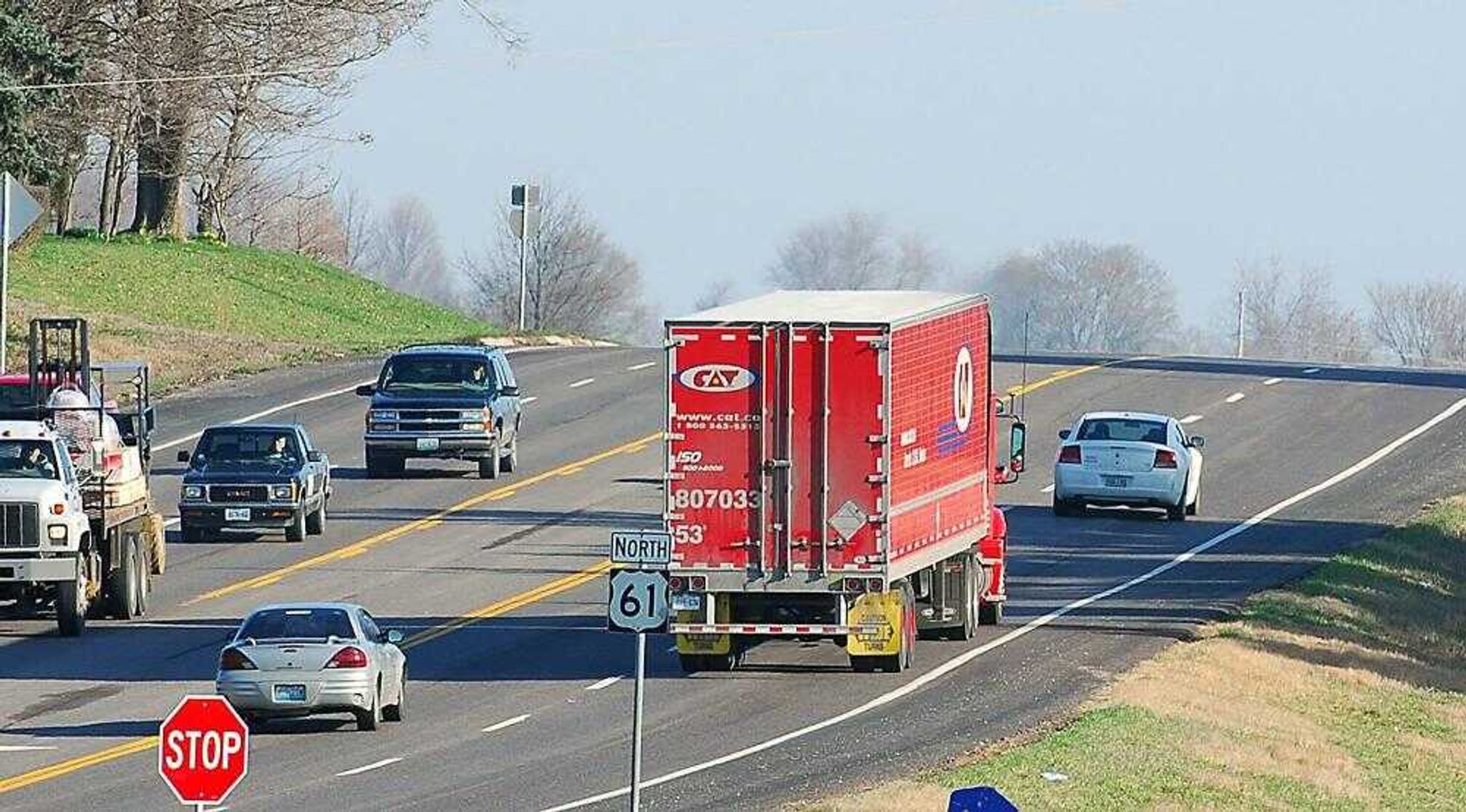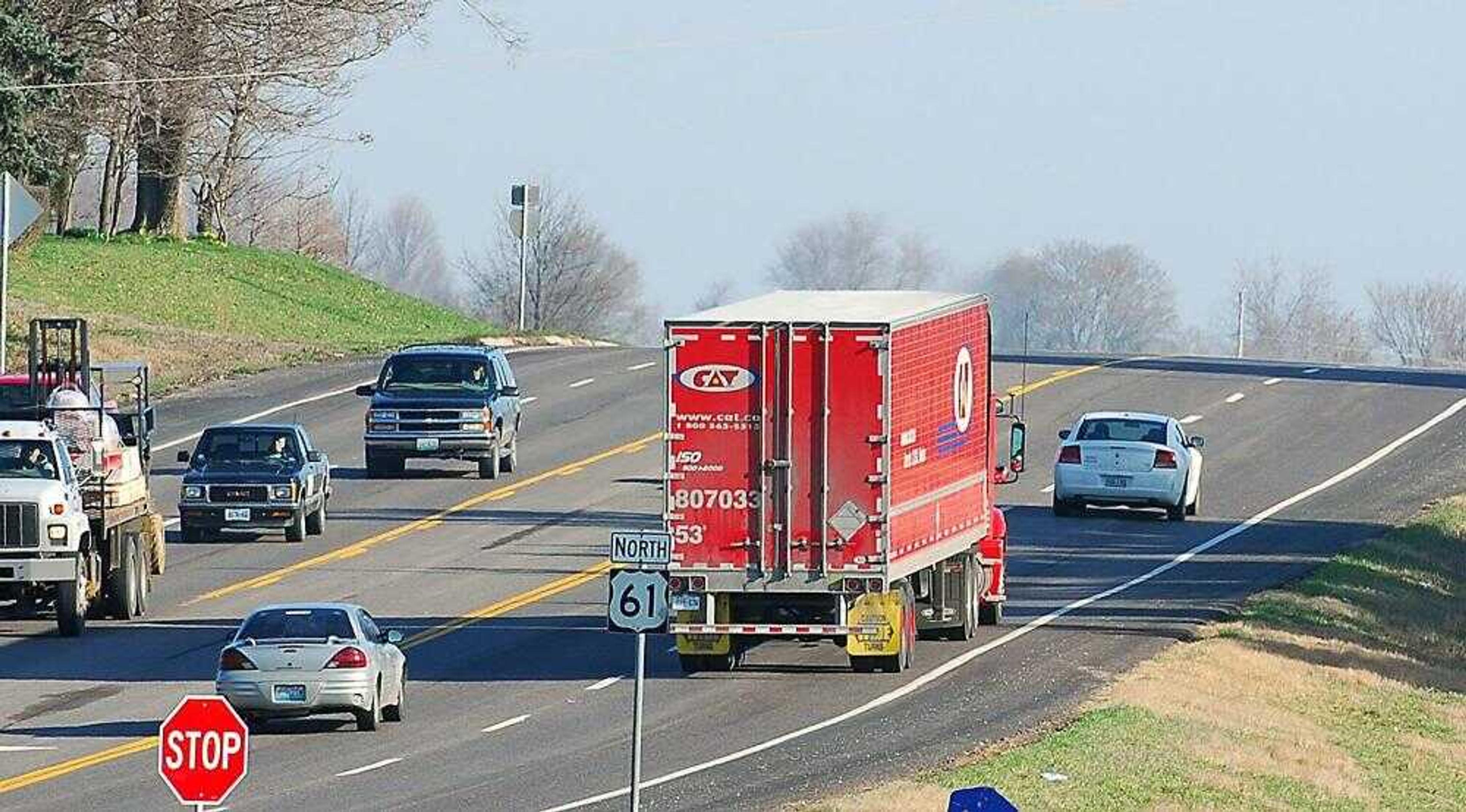Fruitland booming since highway expansions
Once a rural community predominantly populated by wheat and corn farmers after the Civil War, Fruitland has grown into a bustling town experiencing a boom in residential development. The name Fruitland had nothing to do with fruit growers, said Frank Nickell, director of regional history at Southeast Missouri State University...
Once a rural community predominantly populated by wheat and corn farmers after the Civil War, Fruitland has grown into a bustling town experiencing a boom in residential development.
The name Fruitland had nothing to do with fruit growers, said Frank Nickell, director of regional history at Southeast Missouri State University.
"The whole region had been called Pleasant Hill," Nickell said. "There were no orchards there. In 1868 or 1869 it became Fruitland."
Nickell said founder Elam Templeton created the town in 1965 after the area became popular with Scottish and Irish farmers migrating from Tennessee, Kentucky and the Carolinas. The major crops were wheat and corn.
That was also the year James Hutchison Kerr arrived in town, a person who had a significant effect on Fruitland, Nickell said.

"He really did put Fruitland on the map," Nickell said, in part by creating the Fruitland Normal Institute, which gave the town its name in 1868.
Kerr started the school with the hopes of turning it into a college. Those dreams were dashed when Missouri started a teacher training school in Cape Girardeau in the early 1860s. The school eventually disintegrated and Kerr moved to Colorado where he started Colorado Springs College.
Meanwhile, Templeton plotted the town, Nickell said.
"The town became primarily a little cluster of small businesses and sat there a long time into the 20th century," he said.
When Interstate 55 was completed in 1971, Nickell said it drew a lot of traffic away from Fruitland, but now with the widening of Highway 61 in 2000 and Highway 177 in 1999, things seem to be picking up.
"Right now it's at a significant crossroads, with 61 developing north and south and 177, a major highway, making land prices go up," he said.
Century 21 Heartland Realty agent Denise Stover said that even with considerable new residential construction in Fruitland, home prices are less expensive than incorporated communities like Jackson and Cape Girardeau.
"There are subdivisions, and people like that," she said of myriad new housing developments in Fruitland.
Proximity
People also like working close to home. Charmin and Procter & Gamble plants are situated nearby, helping residential development continue, she said.
Taxes are less in an unincorporated area like Fruitland than in a town like Cape Girardeau, she added. "People can probably spend more on a house here because of the savings they'll see in taxes," she said.
Fruitland residents, both old and new, say the community has a welcoming, friendly feel that makes living there comfortable.
"It's a quiet, rural area, but things are close," said resident Cheryl Kiefer.
Country feel
Kiefer moved to Fruitland in September and said she enjoys the country feel while being close to major shopping centers in Jackson and Cape Girar-deau.
Her neighbor, Loretta Brown, said she's always felt people are helpful and friendly in the 30 years she's lived in Fruitland.
Brown and her husband, Paul, raised four children in Fruitland, and she said she could always count on her neighbors to help keep an eye on the children as they played in the neighborhood.
Fruitland's small-town feel means everyone cares about their neighbors and most people know one another in the community, she said.
"It's down-home country, and that's a good thing," she said.
Cape Girardeau County commissioners say they don't know how many people live in Fruitland, nor whether the number of residents and businesses has increased over the past few years.
Commissioner Larry Bock said the county doesn't keep population figures for unincorporated areas, and commissioners have no immediate plans of incorporating the township.
Residents aren't supportive of a planning and zoning commission, Bock said, so in the county's unincorporated areas, growth is unrestricted.
Based on numbers from the Fruitland Area Fire Protection Distinct, about 9,000 residences are under the district's umbrella today.
Created in 1977 with 20 volunteer firefighters after the Fruitland Methodist Church and C&G Feed Company burned to the ground, the district now has 40 volunteer firefighters, first responders and emergency medical technicians who train more than 3,000 hours per year, said chief Dean Riley.
"In 2000 we started responding to medical emergencies," he said. "That increased our total calls from 98 in 2000 to 151 in 2001."
Covering 110 square miles, the district is the largest of seven volunteer fire departments in Cape Girardeau County, he said.
School enrollment
David Gross, principal of North Elementary School in Fruitland, said he has noticed many new housing developments in Fruitland over the past several years, but his student population has remained stable. The K-5 school is at the intersection of Route W and Highway 177.
Gross said residential growth has not adversely affected the school. The student population has remained between 270 and 280 for the past few years despite a number of new students enrolling each year, he said.
"We have a lot of students that move in and move out," he said.
Vickie Chevalier, attendant secretary at Jackson School District, said numbers at Jackson Senior High School, which includes grades 10 through 12, have been declining over recent years. In 2005-2006 the student population dropped to 1,060, down from 1,098 in 2002-2003.
"Right now we have 1,132 students," Chevalier said.
The school is expecting enrollment to increase to 1,238 in 2007-2008, she said, based on Jackson Junior High School's expected graduation class this year.
The number of students isn't broken down by residence, she said, but encompasses the entire Jackson School District, which includes Fruitland, Gordonville, Millersville and nine other towns.
"It is a growing district," she said.
At least two Fruitland churches are seeing growth in their congregations that they attribute to new residences.
Pastor Jim Matthews of the Fruitland Community Church said it struggles to keep up with a burgeoning membership.
"We're averaging 250 in worship," he said. "We're up about 8 percent from a year ago. We're trying to strategize how we can accommodate more folks."
Those numbers are up from the 50 people the church started out with eight years ago, he said.
Matthews said that with the increase in businesses and residences in Fruitland, his church will see more people. For now, he said, services have been expanded to accommodate the increase in parishioners, but he sees the church running out of room.
"This building is five years old right now," he said. "Realistically, we can't afford to build right now."
Another church busting at the seams is the Cape County Cowboy Church in Fruitland.
"I think Fruitland is growing," said Pastor Jim Matthews. "Every Sunday we average about 550 people, Thursday nights about 350."
The church started in January 2004 and added additional services five months later to accommodate growing membership.
Expansive district
Matthews said that although part of the increased membership can be attributed to Fruitland's growth, people come to the church from as far away as Sikeston, Mo., and Perryville, Mo.
Services are held in an auction barn off Highway 61, which Matthews said is already overcrowded.
"Easter Sunday we had about 800 people," he said. "We can't house all the people within."
The church has purchased property on Route E that Matthews said will be home to a new, permanent church that will seat 1,000 people.
He expects it to open in about a year.
carel@semissourian.com
335-6611, extension 127
Connect with the Southeast Missourian Newsroom:
For corrections to this story or other insights for the editor, click here. To submit a letter to the editor, click here. To learn about the Southeast Missourian’s AI Policy, click here.










